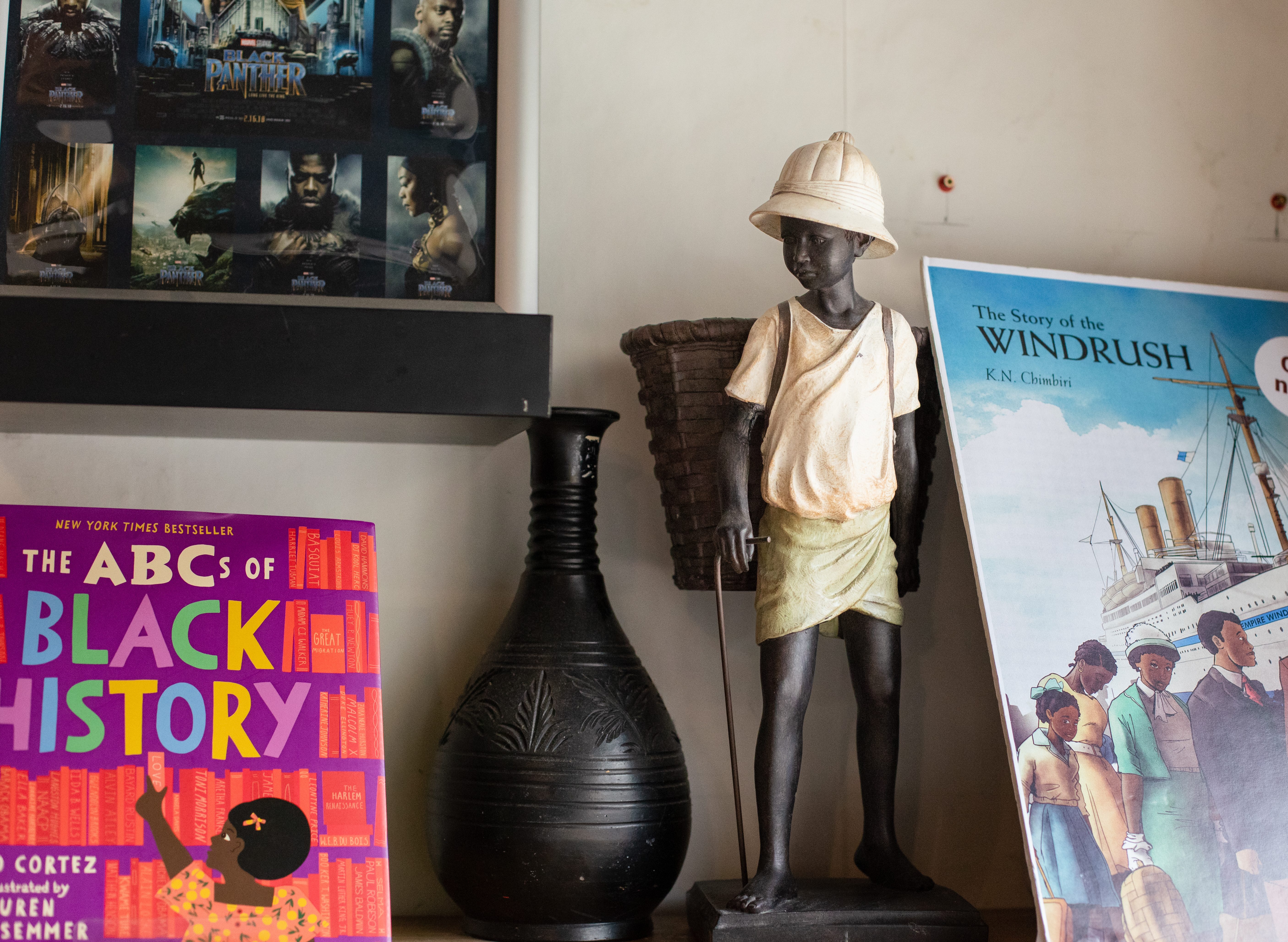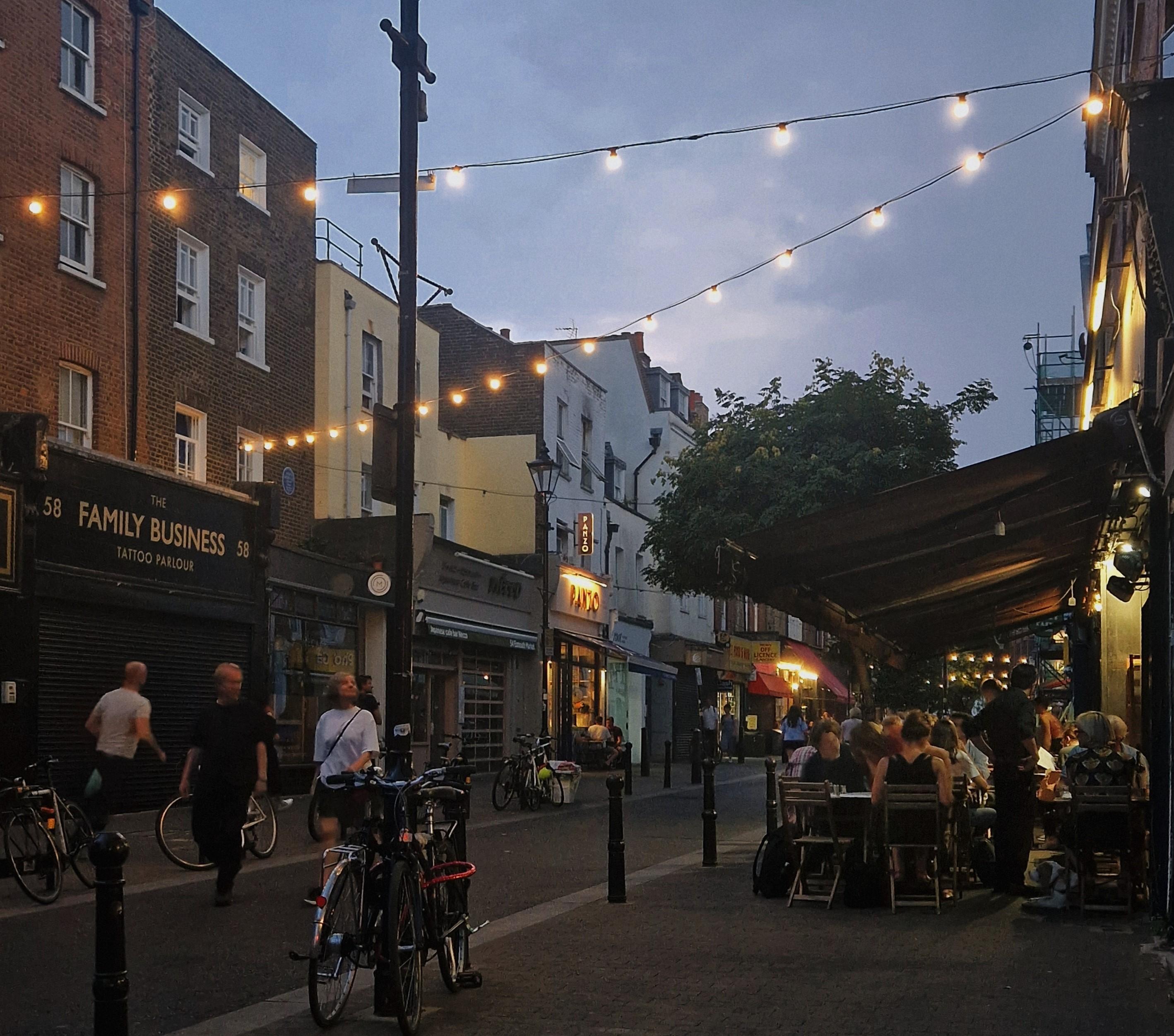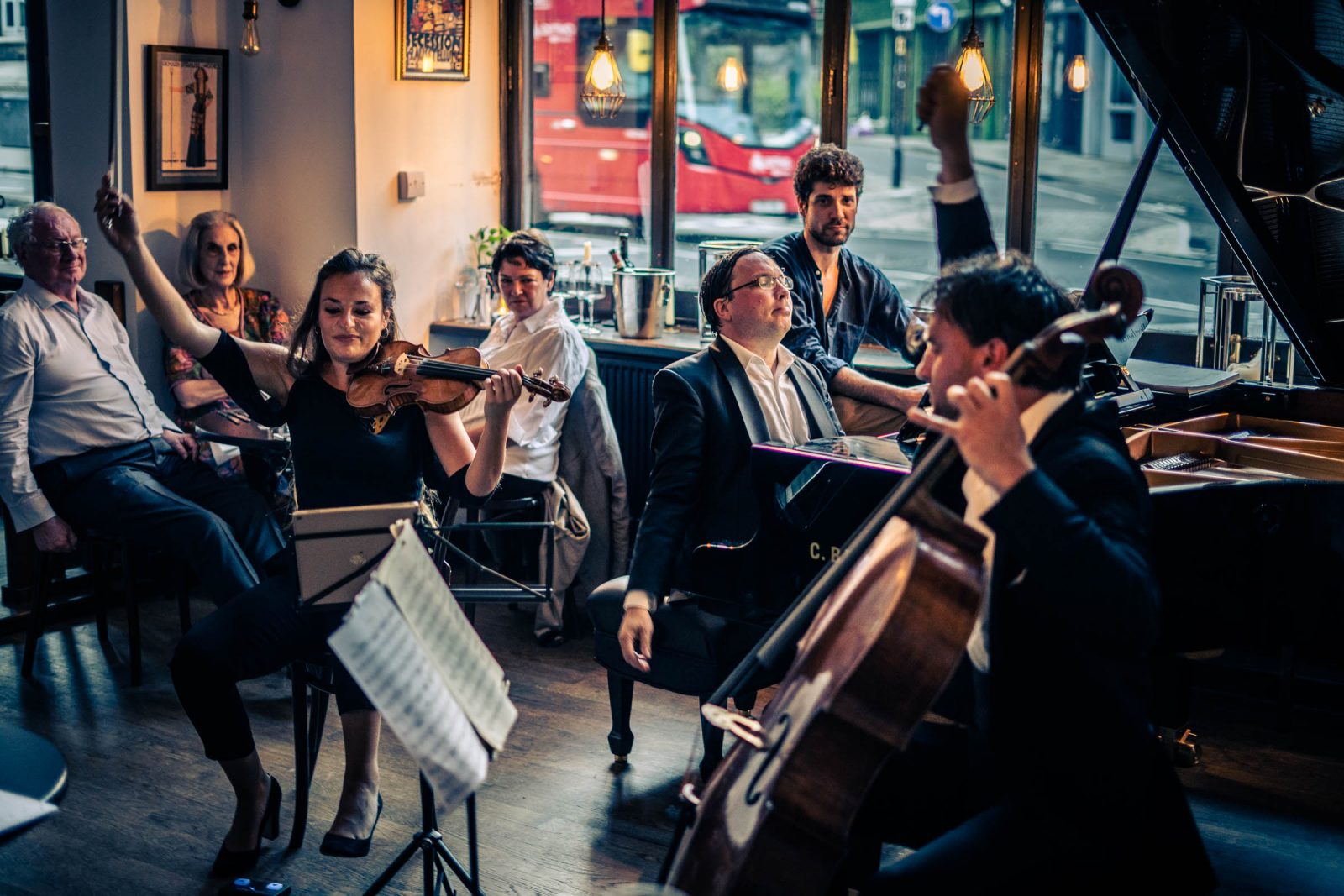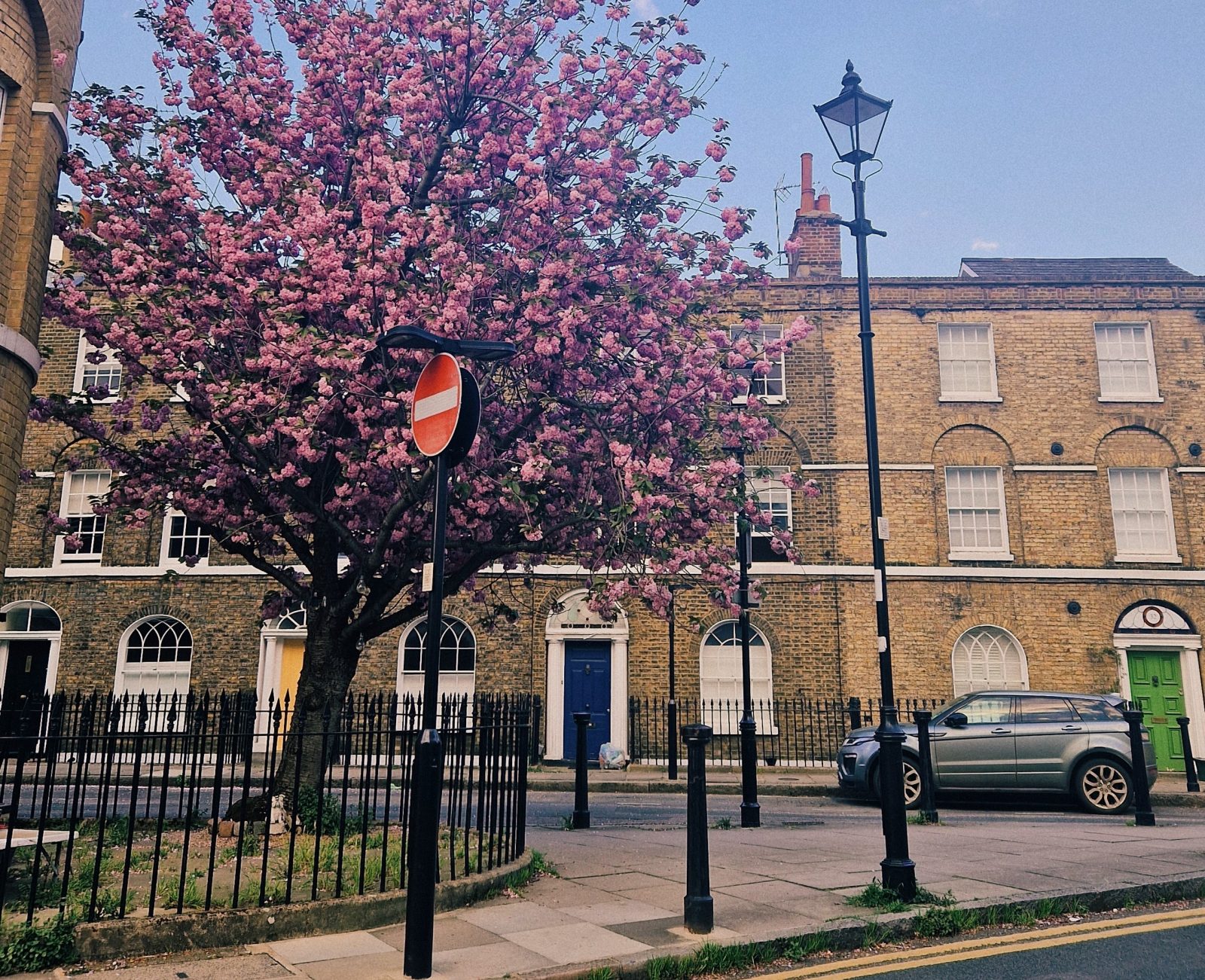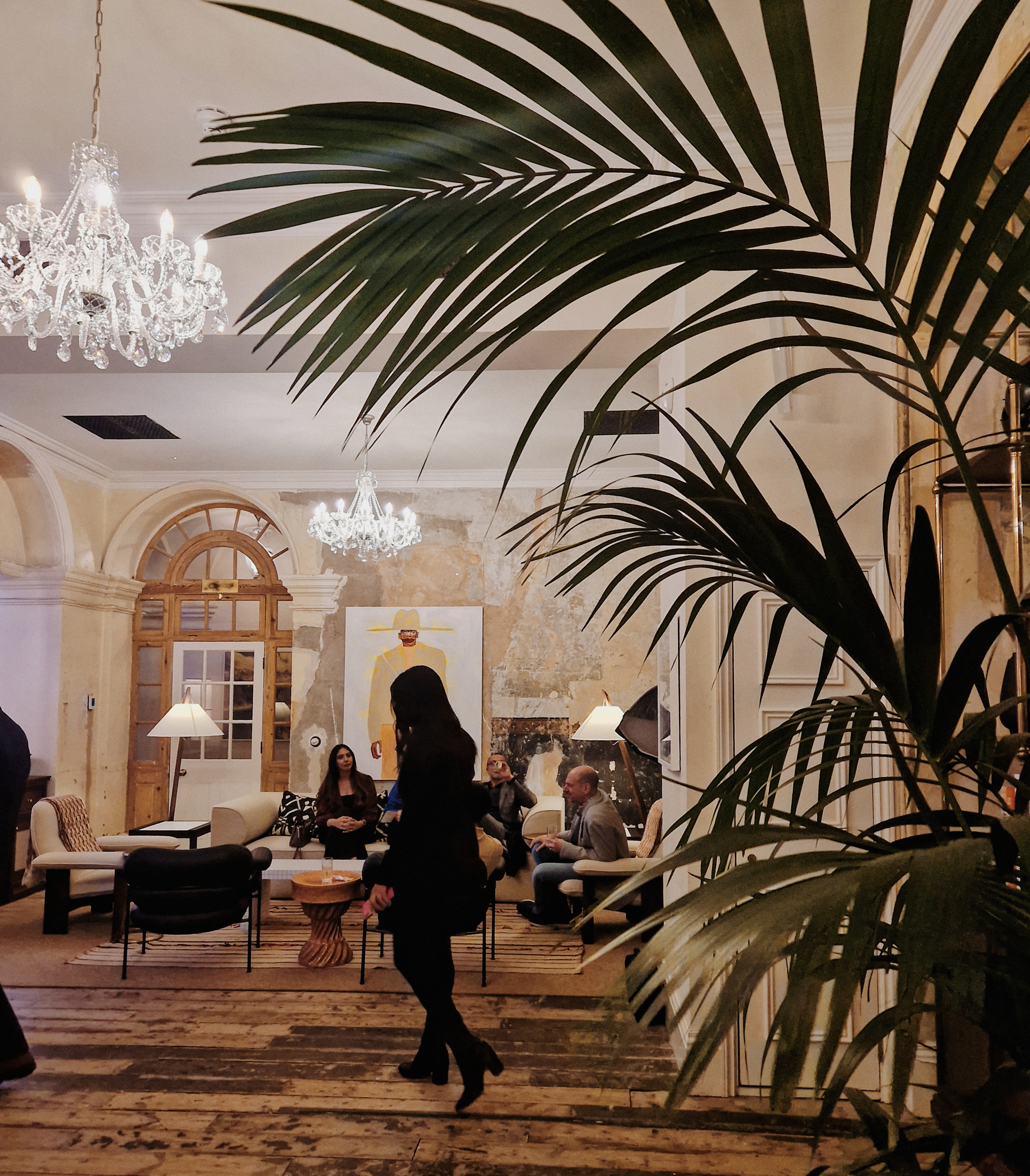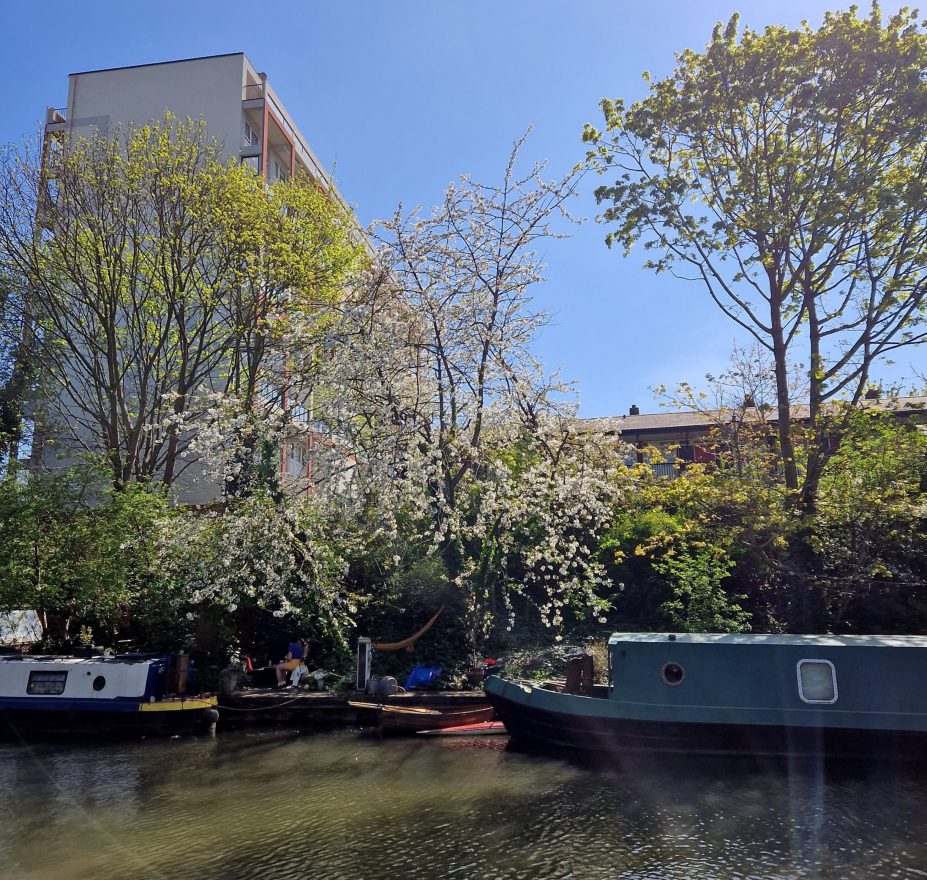New Beacon Books is a specialist bookstore for poetry, literature, non-fiction, history and children’s books from Africa, the Caribbean, Asia, African America, Europe, South America and Black Britain. This emphatic article by Chenoa Colaco shows that the place is much more than a bookstore – New Beacon Books has become a symbol of community, sanctuary and hope.
note from the editor
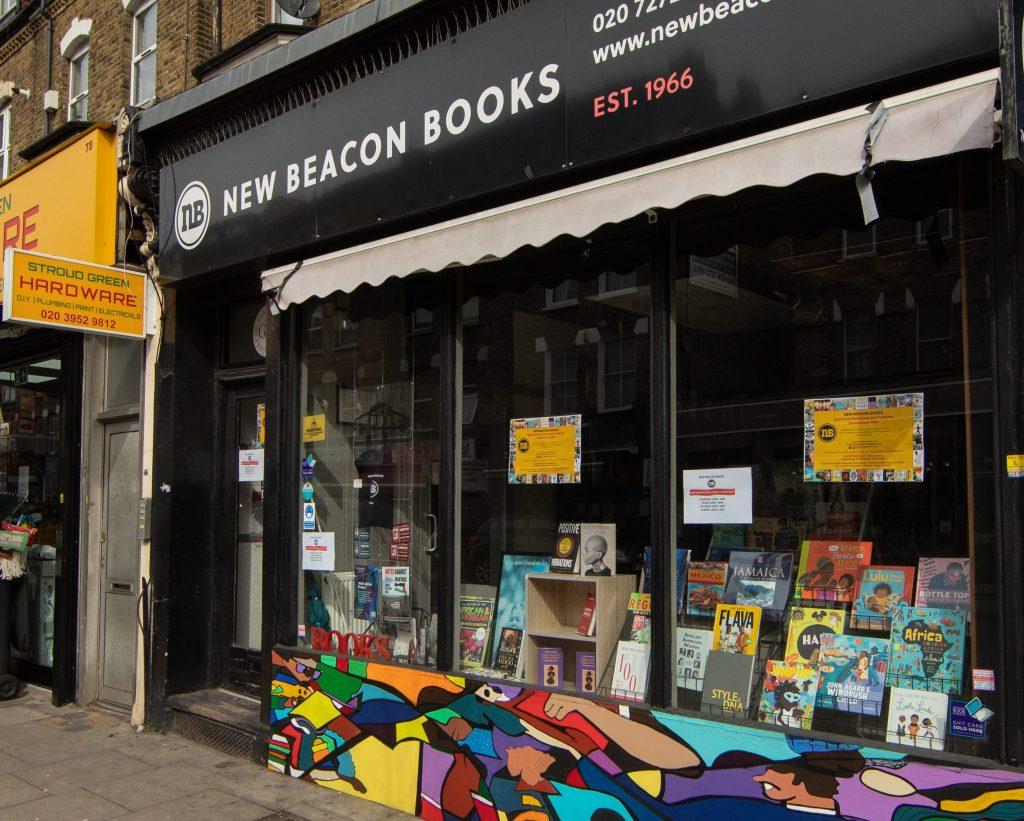
There is a gentle but steadfast warmth to New Beacon Books.
Immediately upon entering the bookstore, I feel a sense of ease and comfort. The walls are brimmed with curated book collections ranging from expert academic journals to fictional romances. A few steps in, and I am greeted by the warm smile of Michael La Rose, director of New Beacon Books. After making sure I don’t need his help, he continues to walk around, checking on his other customers. But no, customers isn’t quite the right way to describe those frequenting New Beacon Books. On the left, I see a couple laughing with Michael as they discuss the bookstore’s newest shipments. Further away in the corner, a father is poring over a brightly-illustrated children’s book with his son. Looking around the bookstore, I can instantly see how New Beacon Books has become an indispensable community hub for locals in Finsbury and Islington.
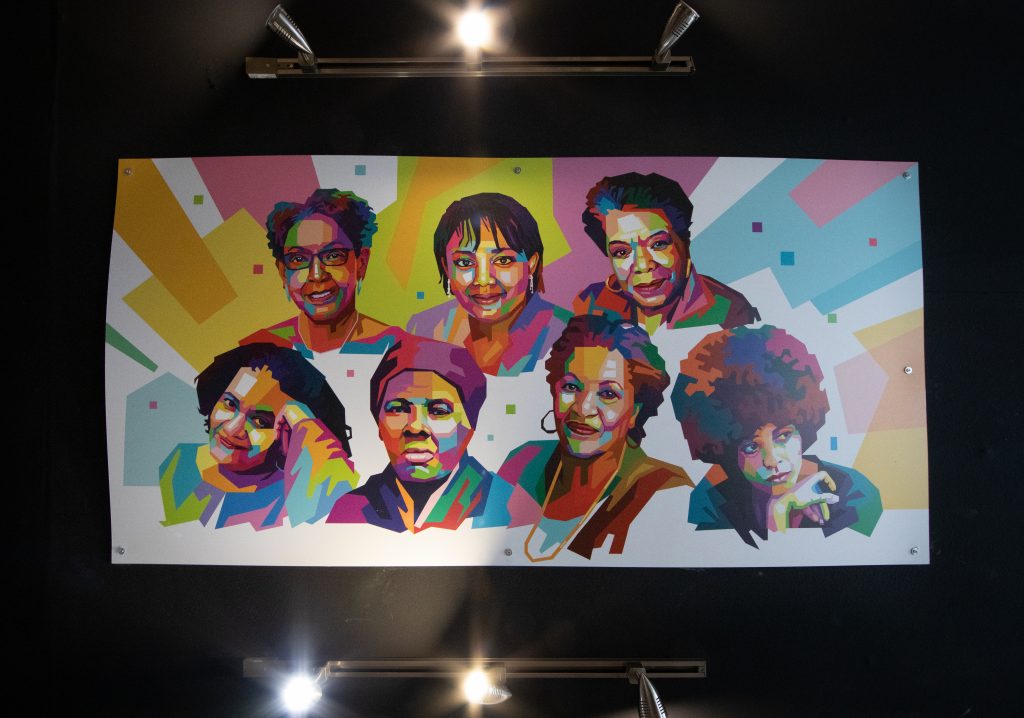
In liberated spaces, you hear the voices of people you would not normally hear
Michael la Rose, DIRECTOR AT NEW BEACON BOOKS
As soon as I sit to interview Michael, he corrects me on the vocabulary surrounding New Beacon Books. New Beacon Books is not just a bookstore; it is a described ‘liberated space’. Michael tells me: “People come in, and we talk about books… there’s this interaction between ourselves and the customers but also between people, so it’s a whole debating area.”
Furthermore, they are not a business but activists in business. “The idea of publishing was to get books from other generations to inform new generations…the purpose of the bookshop is to get people information and knowledge about themselves, their situation, and also what they can do to change.”
The Origins – Meet Michael La Rose
This reverent passion for activism so clearly heard in Michael’s voice has been passed down for generations. New Beacon Books was founded in 1966 by Trinidadian John La Rose and his partner Sarah White. Michael, the son of John La Rose, has stated his family “comes from a particular line of Caribbean activists”.
We started off as a box, then we went into a room with some shelves, then a bigger room and then in ’73 we got this bookshop
Michael La Rose
“One of the things my father always said is that we did not come alive in Britain. We brought with us our skills, culture, art, food and made a big impact in Britain”. New Beacon Books started off as a publishing company, inspired by John La Rose’s political and cultural vision of a new future in Britain.
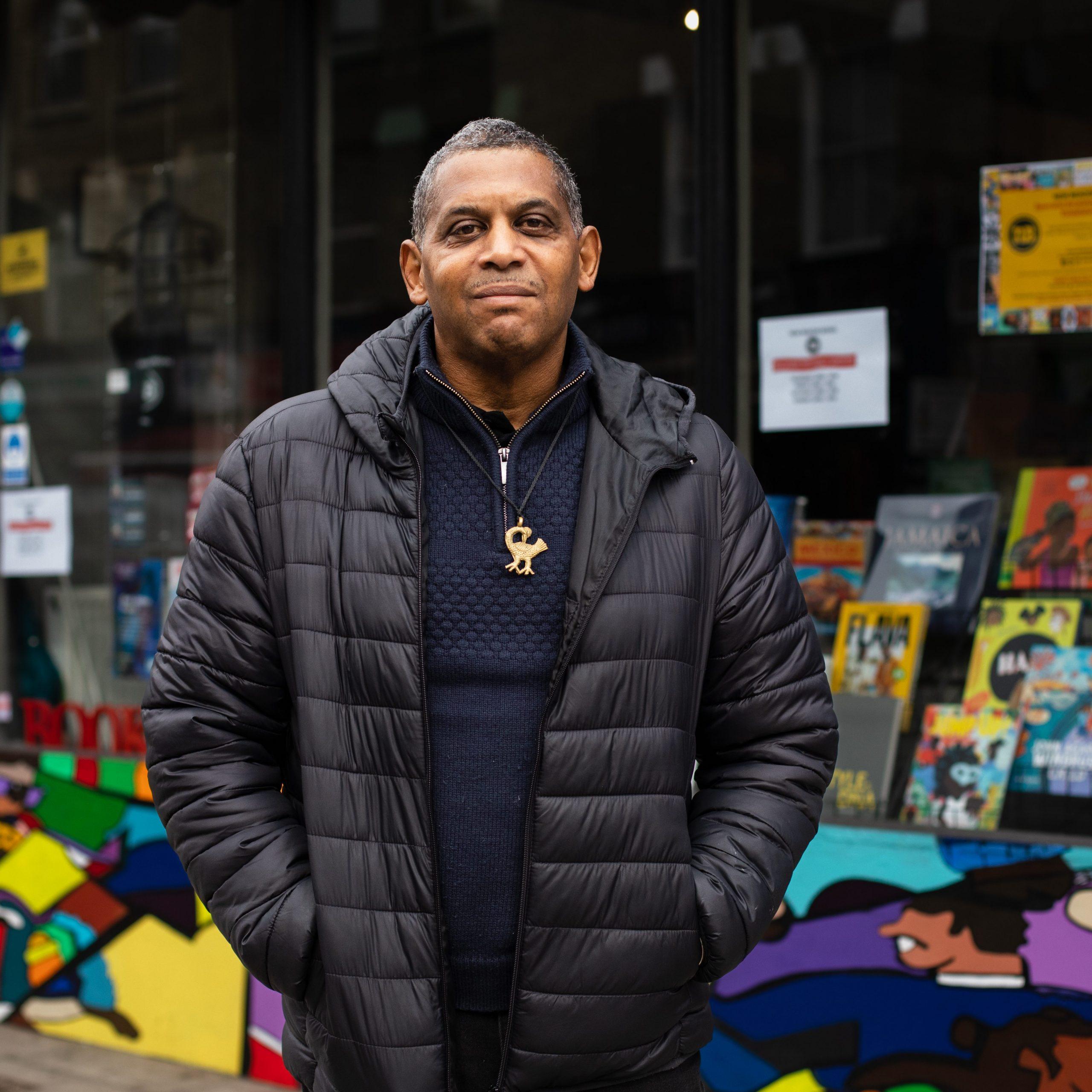
John La Rose wanted to create a space where the discontinuity of knowledge between generations could be prevented. Michael describes how New Beacon members would go to local authorities, schools and events to spread their message and the intricate knowledge they have developed over the decades. “We started going to meetings of the Black Power movement and Black education movements. We linked up with the activists there at the time.” Eventually, these connections were able to grow and develop into the New Beacon Books’ community of the present.
The Art of Book Curation
Today, New Beacon’s bookstore is known for its intricate curation of specialist media from across the world. They pride themselves on their tradition and role in helping to find relevant sources for academics and independent researchers that come “from the Caribbean and other parts of the world” and wish to advance a particular cause.
The New Beacon Books publishing business, as Michael reveals to me, often involves selecting what people need to hear – which sometimes differs from what people may initially want. “We publish things we think are important to understand… rather than what sells the most…we’ll continue to kind of have a slightly different perspective and try and push those different ideas because we really want ideas for change.” Among such critical works published are books on the Creole language and Garveyism. One particular work entitled ‘History of the Voice’ was used to highlight “how important it is in poetry and other art forms to recognize and validate your own voice.”
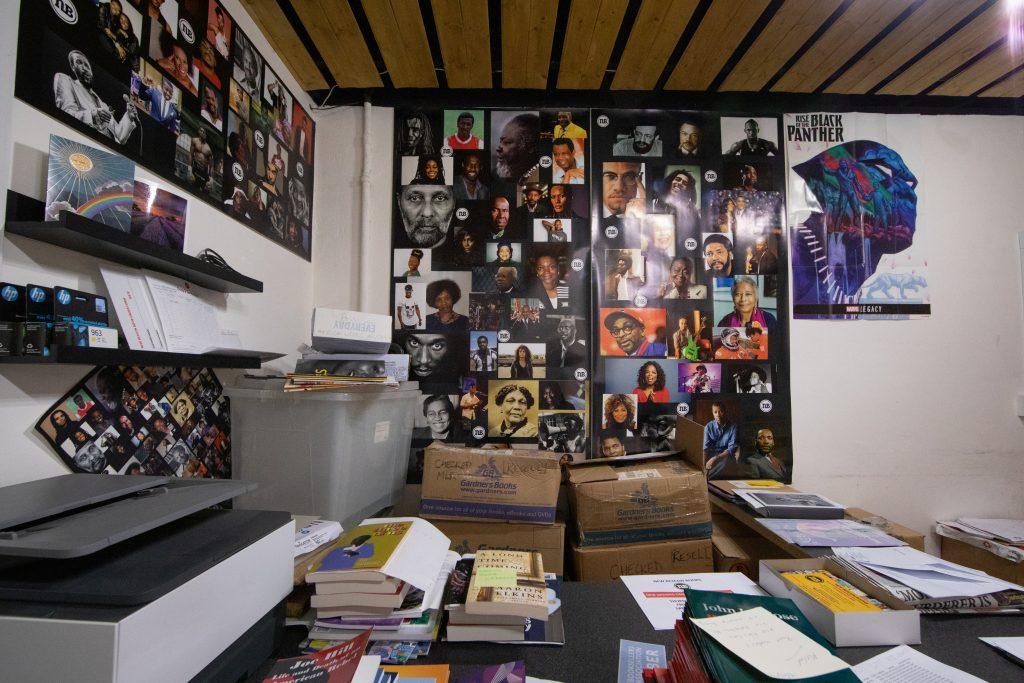
In 1991, New Beacon Books expanded the reach of its impact by establishing the George Padmore archival institute. Michael describes it as the “archive of activists” for all people to access, providing a unique fountain of information from and for the voices not normally heard. “Nobody else would do it, except for us… a normal archive may have all kinds of filters for that information.” New Beacon Books also works with large and well-established archival institutions such as the Black Cultural and London Metropolitan Archives to ensure such information is accurately interpreted. “It’s important that the information doesn’t disappear into the ether or get interpreted by someone else. The material is always there.”
Saving New Beacon Books
With the start of Covid-19, New Beacon Books had to face the inevitable struggle of a small business that prioritises community wellbeing over all else, even during a period of financial difficulty.
“We tried everything in the lockdown”, Michael discloses. They attempted to digitalise their community through virtual events, film nights and music performances broadcast over Zoom. “We looked into all kinds of ways to utilise this space… we used the bookshop as a backdrop for films and people like Anthony Joseph did live performances in the shop”. A particularly threatening period occurred in December 2021, when the bookstore decided to permanently shut down in favour of an online store. Immediately, a flock of locals who had felt the heart of New Beacon Books’ started speaking out.
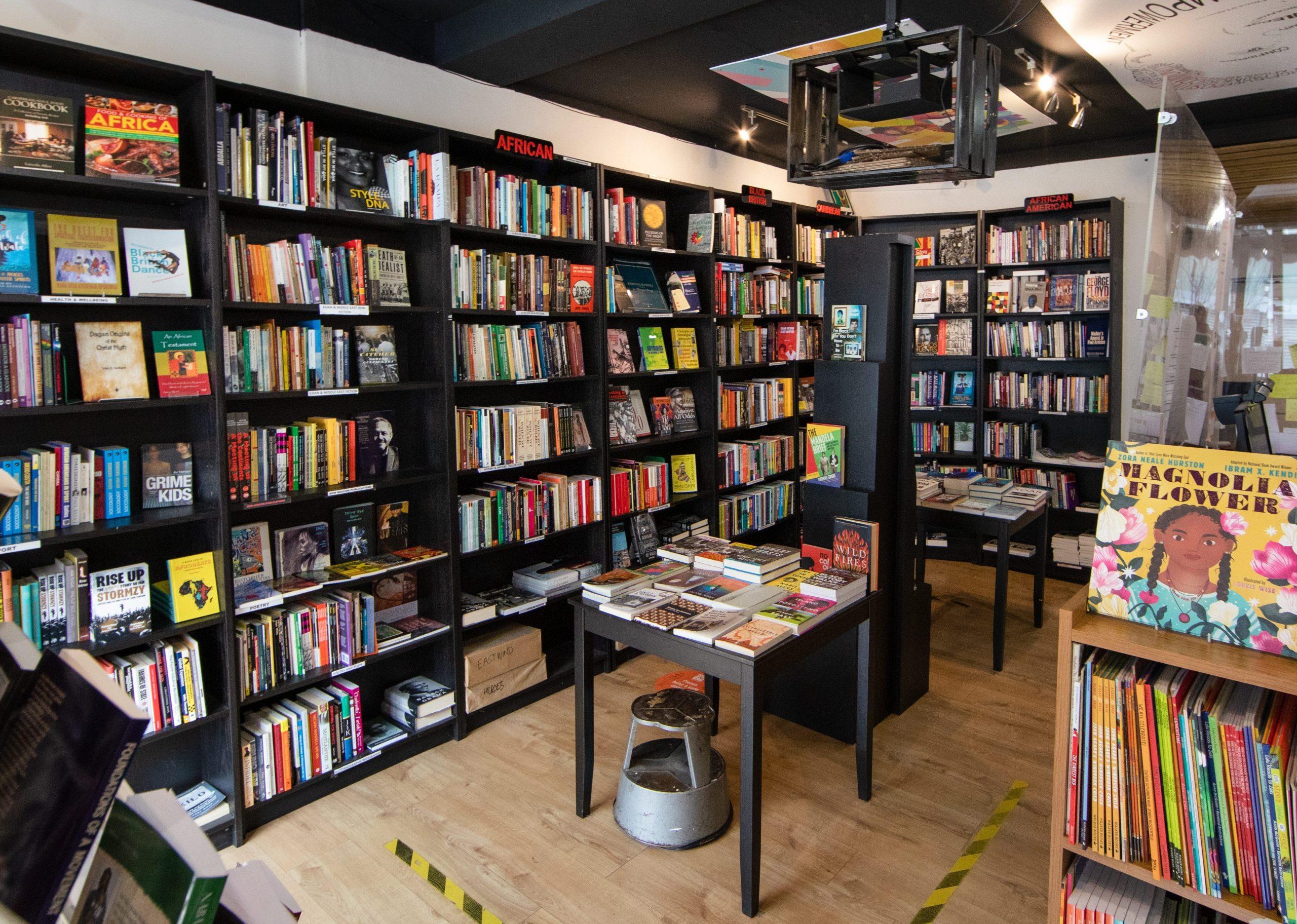
“I am so sad about this wonderful bookshop and the haven of cultural solidarity and information it provided to the black and extended communities for over half a century”, reads a tweet from Actress Adjoa Andoh.
Professor Augustine John, chair of the Communities Empowerment Network, stated that “New Beacon has been at the heart of communities, building social movements and giving expression to young voices.”
This overwhelming shock manifested into a monumental crowdfunding event, wherein New Beacon Books was able to reach its funding targets within 24 hours. In total, over £80,000 was raised to save this community space. These funds will now be put towards creating a sustainable long-term plan for New Beacon Books, as to ensure its security for years to come.
Towards the Future
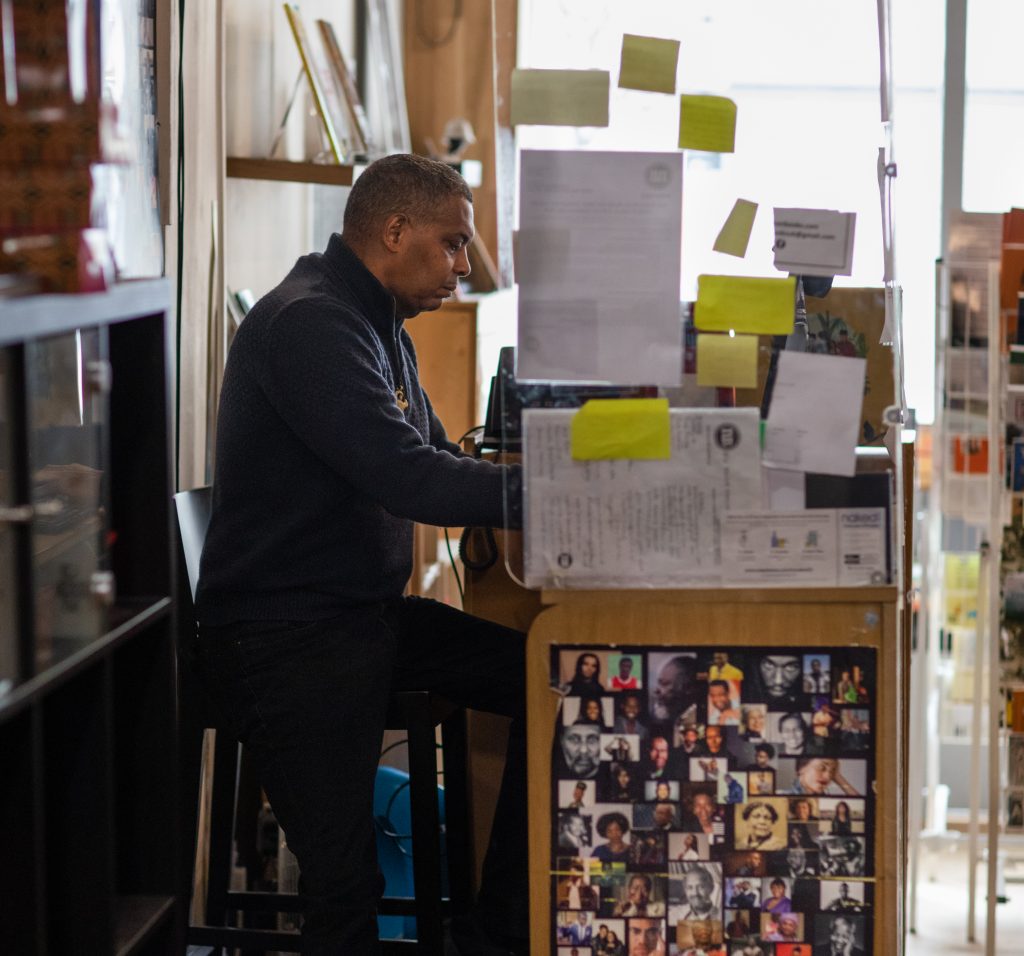
When asked about the future of New Beacon Books, Michael repeatedly mentioned the support New Beacon Books has received from the local community over the years. “New Beacon cannot exist without its volunteers”, he says.
We have continued since 1966, and we want to continue in the future. This period is a really electric and confusing time in people’s lives, and we need information and clarity about what we should be doing as individuals and as a collective”.
Michael La Rose
New Beacon’s website reads: “New Beacon Books needs you, as well as the younger generation, elders and students to visit the bookshop, order books on the website or by email. Get literature, poetry, gain knowledge and ideas.”
As I walk out of the bookstore, Michael tells me about the colourful mural by Benjamin Asante, which adorns New Beacon’s storefront. The Ghanaian artist uses his craft to represent the passion of fighting for what is right, a true embodiment of what the New Beacon Books stands for. Throughout the years, this space has changed in many ways, but its solidity as a staple of the Islington community remains an unswerving constant.
Read more about New Beacon Books on this website.
Written by Chenoa Colaco
Photography by Niko Kuprijanov

